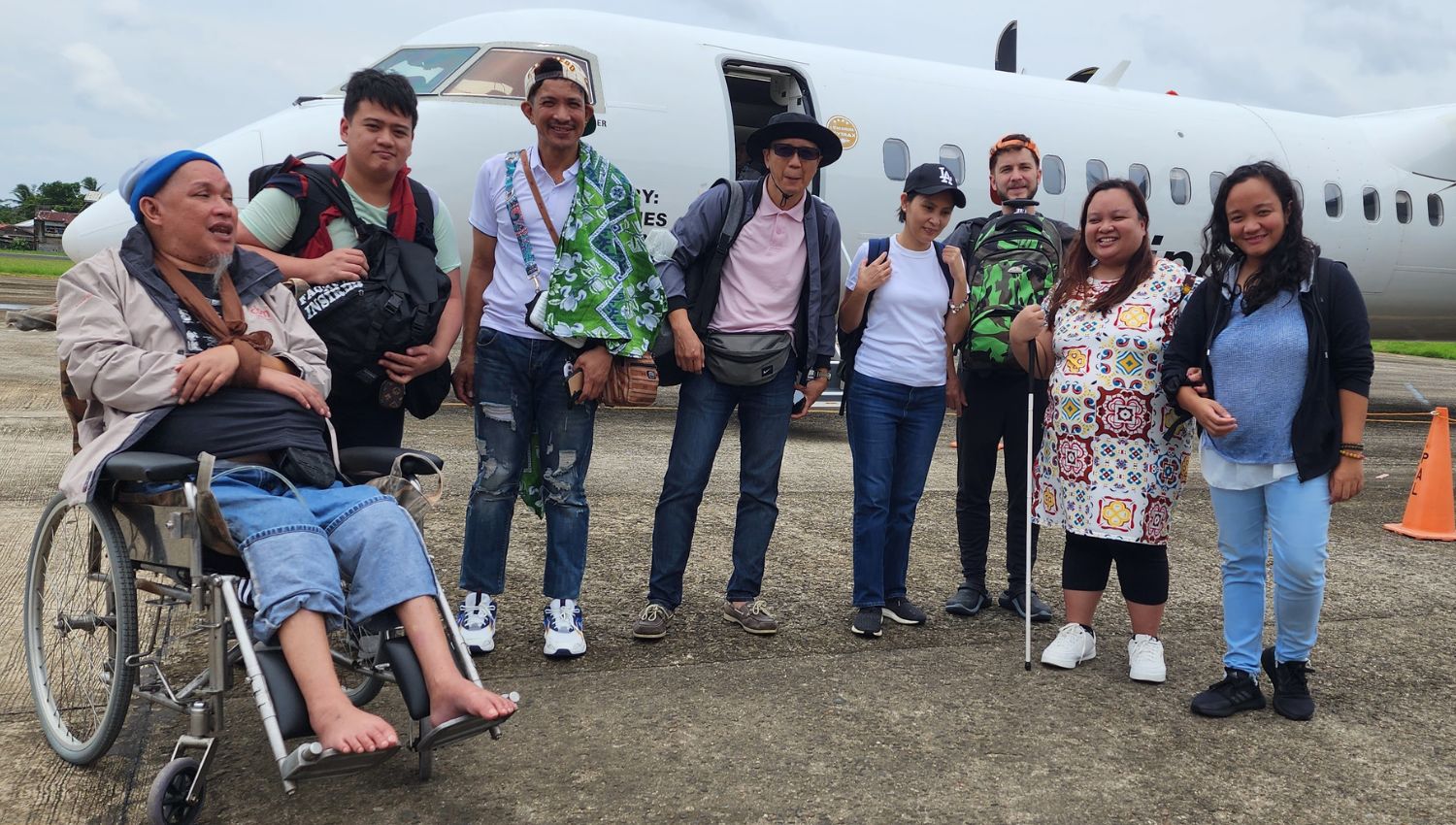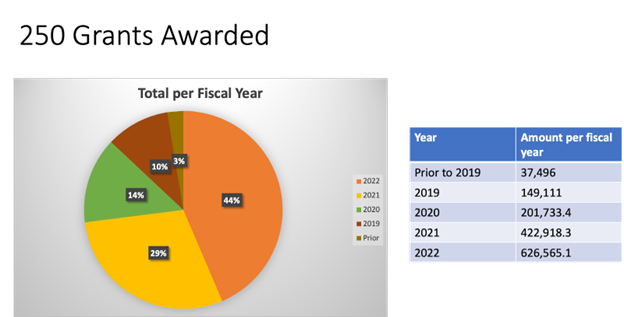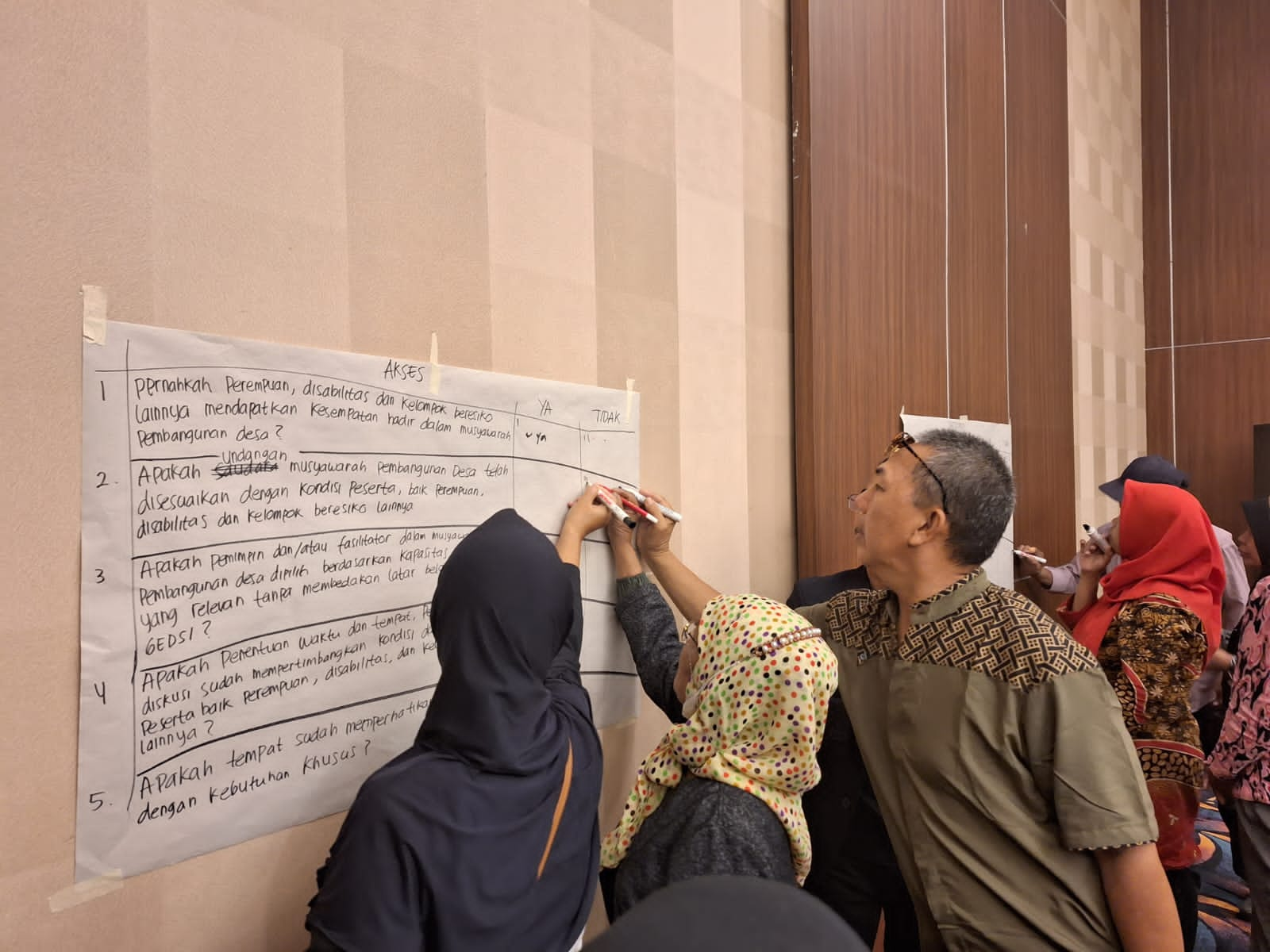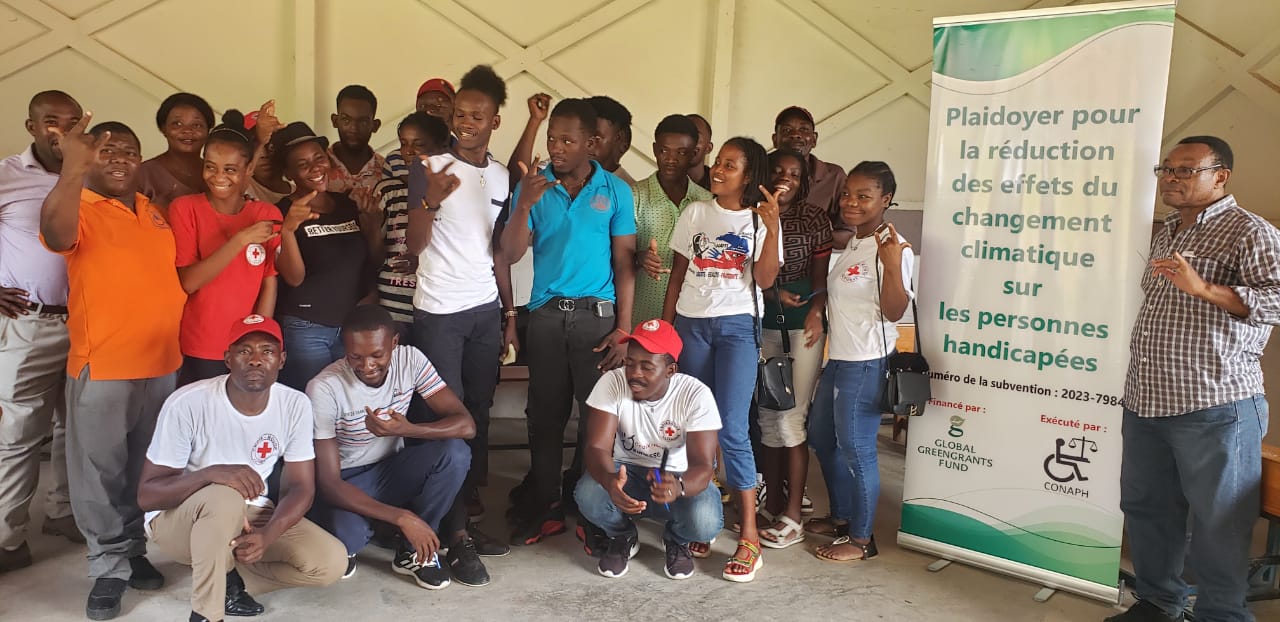By Yolanda Muñoz, Disability Rights and Climate Justice Board Coordinator

In July 2023, Global Greengrants Fund celebrated the first anniversary of the Disability Rights and Climate Justice (DRCJ) Advisory Board, an initiative that stands at the crossroads of two pressing global issues—disability rights and climate justice.
Global Greengrants Fund’s disability work began in 2018, when Ford Foundation supported the organization in a journey to dismantle ableist practices in their grantmaking goals. In 2022, Global Greengrants Fund formalized that work into the DRCJ Advisory Board, responding to the need for increased understanding in environmental and philanthropic communities that disability rights is a key climate justice issue. Prior to 2018, Global Greengrants Fund had invested only $39K in disability-inclusive projects; in 2022, through its many other advisory boards, Global Greengrants awarded more than $600k USD to disability-inclusive groups around the world.

In fiscal year 2023, during the DRCJ’s first grantmaking year, the DRCJ gave more than $300k USD to 31 organizations of persons with disabilities or other organizations that sought to improve the participation of persons with disabilities in their endeavors. This is in addition to the disability-inclusive grants that Greengrants advisory boards across the world will continue to give out as part of Greengrants’ commitment to intersectional environmental justice.
The Board has emerged as a platform for change, and a testament to the power of collaboration and advocacy, both within and across movements. The Board members include, in alphabetical order:
- Dwi Ariyani, Regional Head of Programs – Asia for the Disability Rights Fund and the Disability Rights Advocacy Fund.
- Mary Keogh, Advocacy Director for CBM Global.
- Yolanda Muñoz, Coordinator of the DRCJ Board.
- Elham Youssefian, Disability Rights Activist
The Board is also grateful for the participation of Ipul Powaseu during its initial launch. We would also like to welcome Marianne Menut to the team to provide support with communications and administration.
Here’s a closer look at the journey, achievements, and significance of this remarkable endeavor.
A Vision for Inclusion:
The Disability Rights and Climate Justice Advisory Board was born out of a shared vision for a world where the voices of disabled individuals are not only heard but also integrated into climate action strategies. The connections between climate change and disability rights might not be immediately obvious, but both issues are deeply intertwined. People with disabilities are disproportionately affected by climate change due to limited mobility, medical needs, reduced access to resources, and more. Yet, their perspectives and insights have often been marginalized in discourse on environmental justice. The DRCJ Board hopes to bridge this gap and break down the siloes between disability and environmental justice movements.

The Power of Collaboration:
Bringing together experts, activists, policymakers, and individuals with disabilities to act as advisors, the Board has fostered a space for meaningful dialogue, collaboration, and knowledge exchange. This collaboration has enriched both the Board and the organization’s understanding of the complex intersections between disability and climate change, leading to innovative solutions that address the unique challenges faced by persons with disabilities in a changing world.
In this spirit, the Board has already begun to take action beyond grantmaking to build bridges between disability and climate movements, as well as philanthropy. These efforts have included:
- Global Greengrants Fund and CBM Global teamed up to produce a case study on the situation of persons with disabilities in Southern Madagascar.
- The Board members have shared their expertise through meetings and webinars.
- The Board prepared a written submission to the General Comment on Article 11 of the Convention on the Rights of Persons with Disabilities (CRPD) and are currently involved in the follow-up process.
- During COSP16, the Board contributed to the side event “Towards Disability-Inclusive Climate Action: Do We Have All Tools for Change?” in collaboration with the UNPRPD Fund, International Disability Alliance, International Disability and Development Consortium, Global Greengrants Fund, and Global Action on Disability (GLAD) Network Disability-Inclusive Climate Action working group.
Milestones and Achievements:
In its inaugural year, the Disability Rights and Climate Justice Board has achieved remarkable milestones. Through networking and open calls, the Board received 91 applications, far exceeding our expectations. The Board approved 31 grants for a total of $323,133 USD to support organizations of persons with disabilities in Sub-Saharan Africa, South-East Asia, the Pacific Islands, Latin America and the Caribbean, and Europe. The Board also emphasized the importance of supporting women, Indigenous Peoples, and young persons.
Here are just a few examples of the many projects the Board funded in its first year:
- AZEMAP (Persons with Albinism Mozambique) (Mozambique) received a grant to support persons with disabilities in the aftermath of Hurricane Freddy, as well as to conduct a series of filmed interviews about the challenges faced by those who received Hurricane Freddy support. The organization is preparing a thorough report of their findings, both in Portuguese and English.
- DeafFlourish Association (Marshall Islands) received a grant to produce a guide on Deaf and Hard of Hearing (DHH) populations’ engagement in local climate action, as well as to make information, communication, and awareness-raising campaigns on climate action and disaster risk reduction more inclusive of DHH communities. The group also plans to create a reflective report featuring video testimonials from DHH adults, who will reflect on their experiences.
- Latin American Network of Organizations of Persons with Disabilities and their Families (RIADIS) (Regional) received a grant to support persons with disabilities to participate in climate conversations throughout Latin America and the Caribbean, and to advocate for the adoption of disability-inclusive environmental policies with an intersectional approach.
- Life Haven Center for Independent Living (The Philippines) received a grant to conduct participatory and consultative research about the impacts of climate change on persons with disabilities in the Eastern Visayas region. The research will support the organization and other organizations of persons with disabilities it partners with to better support and advocate for persons with disabilities in the context of climate impacts on the region.

Looking Ahead:
As we celebrate the Board’s first year, it is important to acknowledge that the journey is far from over. Moving forward, the Board aims to expand its reach, deepen its impact, and continue pushing for systemic change. The coming years promise further collaboration, policy advancements, and increased representation for disabled individuals in global climate discussions.
A Call to Action:
On this anniversary, we reaffirm our commitment to a world that values inclusivity, justice, and care for both people and planet. The Disability Rights and Climate Justice Board reminds us that no one should be left behind in the pursuit of a sustainable and just future. By amplifying the voices of persons with disabilities and integrating their perspectives into climate solutions, we can build a world that is not only resilient to environmental changes but also rich with empathy and meaningful inclusion. We are looking forward to a future where the DRCJ Board continues to galvanize the transformative power of collective action and advocacy.
